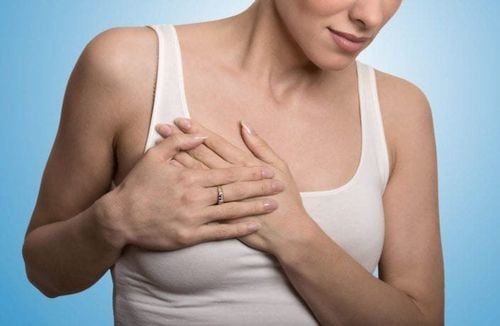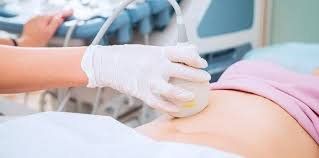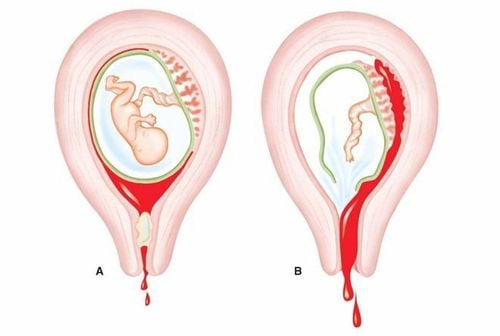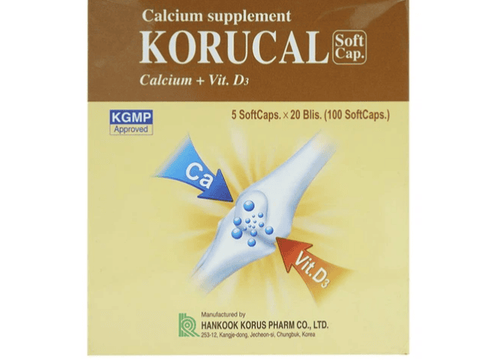This is an automatically translated article.
The article was professionally consulted with Specialist Doctor II Tran Thi Mai Huong - Obstetrician and Gynecologist - Department of Obstetrics and Gynecology - Vinmec Hai Phong International General Hospital.Perimenopause & menopause are periods of transition for a woman's reproductive function. Therefore, you need to understand the changes of your body during this period so that you can adapt to them without too much impact on your psychology and health.
1. What is perimenopause - menopause?
Perimenopause is the time when the body begins its natural transition to menopause, marking the end of a woman's reproductive age. Perimenopause is also known as the menopausal transition, at which time the body will not have an ovulation cycle, menstrual periods will stop and no longer have the ability to reproduce. This period usually occurs between the ages of 45-50, and can last 2-5 years depending on the person.Menopause is the second transitional phase in a woman's sexual life, occurring due to a decrease in ovarian function, the ovaries stop working and stop secreting female hormones, leading to stop menstruating each month and terminate a woman's fertility.
2. Body changes during perimenopause and menopause
Body changes during perimenopause and menopause can be:2.1 Irregular menstruation
Hormonal changes affect the release of eggs by the ovaries, and this can make periods slower or shorter or stop them for several months. Menstrual bleeding is less or more frequent and occurs after the age of 40.2.2 Hot flashes or hot flashes
Sudden hot flashes and sweating, this is the most common sign of perimenopause, it can vary in duration of hot flashes or increase in intensity throughout the day including night, with insomnia snoring and trouble sleeping. This hot flush can last from 2 to 5 years. When estrogen levels drop, blood vessels can dilate rapidly, causing skin temperature to rise. This can cause a burning sensation that spreads from the chest to the shoulders, neck, and head. Excessive sweating and drying causes the skin to lose a lot of heat, leading to feeling chills, fatigue, and sluggishness. Hot flashes can last from 30 seconds to 30 minutes.2.3 Vaginal dryness

2.4 Urinary tract infections
Urinary tract infections can occur during perimenopause. Women may notice signs of a UTI such as urinating and pain while urinating. The way to prevent UTIs is to go to the bathroom after intercourse, use lubricants and do pelvic floor exercises regularly.2.5 Decreased desire
There are many causes of low libido in women during perimenopause, such as mood swings, lack of sleep, dry vaginal mucosa, atrophy, vulnerability or bleeding, etc. However, very few women experience it. lust problems during this period.2.6 Soreness
When estrogen levels drop, ligaments and cartilage are also affected. There is research that suggests that hormonal changes are involved in the development of osteoarthritis. Muscle pain and joint pain are considered the most common changes of perimenopause. Some women may also experience soreness especially in the breasts.2.7 Weight change
The metabolism to build muscle is slowed down, along with the increased stress caused by lack of sleep and anxiety about these changes. Stress increases weight due to high levels of the hormone cortisol. So you should exercise regularly and eat a healthy diet.2.8 Chest pain
As estrogen levels drop, cholesterol and sugar rise, and the heart and blood vessels also become stiffer. This will lead to an increased risk of heart disease due to blockage of blood vessels. Lifestyle changes can be of great help with this condition. Increase your diet rich in green vegetables and dark leafy greens like broccoli.
2.9 Osteoporosis
Estrogen is an important hormone for maintaining bone health, helping to speed up the absorption of calcium. When approaching menopause, ovarian function is reduced, estrogen in the body is reduced, causing a large amount of bone weight loss, thereby affecting bone health.2.10 Sleep disturbance and night sweats
Night sweats are a common accompanying change in hot flashes. I often wake up at night, sweat a lot, and feel chills. Then go back to sleep. About 1 in 4 middle-aged women have a sleep disorder. Insomnia also affects mood and general health.2.11 Negative mood swings
Entering menopause, women are often prone to irritability, sadness, anxiety, and stress. Increased sensitivity or vulnerability to emotional events or increased risk of depression may occur during perimenopause and menopause.2.12 Types of female genital cancer
Cervical, ovarian, and breast cancers often appear during menopause. Doctors advise women in this age not to forget to have regular gynecological and breast exams to screen and diagnose gynecological cancers at an early stage.2.13 Reduced fertility
Reduced fertility means it's harder to get pregnant and the baby is more likely to have birth defects. However, women can still conceive for up to a year after completely stopping menstruation. At this age, due to genetic changes in ovarian follicles, older mothers have a high chance of giving birth to children with genetic disorders, especially children with Down syndrome. Therefore, doctors do not recommend that older women become pregnant and it is best to use effective birth control.3. Prevention of perimenopausal - menopause disorders
Methods to prevent disorders in perimenopause & menopause:Should have an appropriate lifestyle, rest and relaxation regime to have a relaxed and stable spirit. Eat a nutritious diet as soon as you enter perimenopause. Eat lots of fruits and vegetables, especially soy or alfalfa products (because they contain natural estrogen).

Specialized gynecological examination Gynecological examination, breast examination Transabdominal ultrasound of the uterus and ovaries Taking samples as a chart Cervical-vaginal cytology Mammogram (2 sides) Osteoporosis Measure other tests to detect pre-menopausal conditions, if any.
Please dial HOTLINE for more information or register for an appointment HERE. Download MyVinmec app to make appointments faster and to manage your bookings easily.














